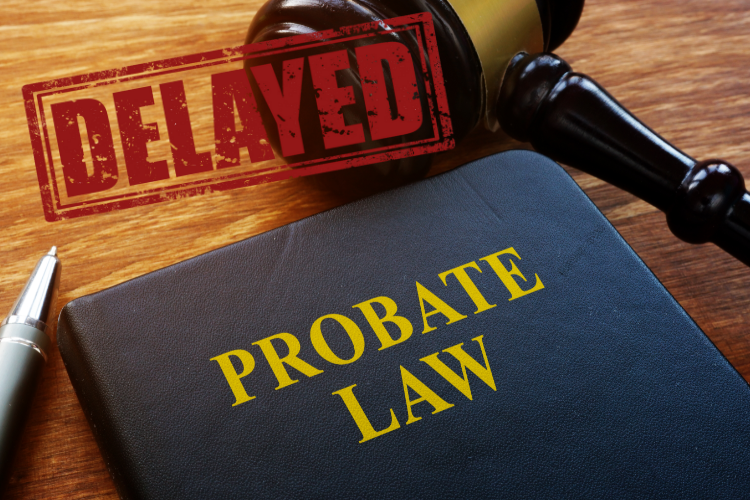Probate often has a reputation for being slow, public, and emotionally exhausting—especially for families already dealing with the grief of losing a loved one.
While the process is designed to ensure the fair and legal transfer of assets, delays are common and can last for months or even years depending on the complexity of the estate, legal disputes, or court backlogs.
The good news? With proactive planning, you can significantly reduce the likelihood of probate delays and ensure your estate is administered as quickly and smoothly as possible.
At Peabody Law Firm, we help families throughout Southlake, Westlake, Trophy Club, Colleyville, Keller, and surrounding areas create estate plans that streamline settlement, minimize court involvement, and give loved ones peace of mind when it matters most.
Understanding Why Probate Gets Delayed
Before diving into solutions, it’s helpful to know what causes probate delays in the first place. Common reasons include:
- Missing or outdated estate planning documents
- Assets not properly titled or coordinated with the plan
- Unclear or disputed wills
- Creditor claims that must be resolved
- Complex asset valuations (e.g., businesses, real estate)
- Family conflicts or contested estates
- Court congestion or administrative issues
Even seemingly minor issues—like a missing signature on a will or an unknown asset—can significantly slow things down.
Streamlining Probate Starts with Smart Planning
The most effective way to speed up probate is to plan in advance. Here’s how:
Use a Revocable Living Trust
One of the best ways to bypass the probate process entirely is to establish a revocable living trust and transfer your assets into it during your lifetime. Because a trust is a private legal entity, it allows assets to be distributed without court involvement.
Benefits include:
- No waiting for court approval
- Immediate access to funds for loved ones
- Reduced legal fees
- Privacy (unlike probate, trust administration is not a public record)
But a trust is only effective if it is properly funded. Many delays occur when individuals create a trust but forget to retitle their assets into it.
Keep Your Estate Plan Updated
An outdated will or trust can be as problematic as having none at all. Major life changes like marriage, divorce, the birth of children, the death of a beneficiary, or the sale/purchase of property should all trigger a review of your estate plan.
An updated estate plan helps:
- Eliminate ambiguity
- Prevent will contests
- Ensure the right people are in place to manage your estate
Review your plan every 3–5 years or after any significant life event.
Organize and Consolidate Your Assets

Disorganized estates lead to long, frustrating court cases. To make administration easier and faster:
- Create a complete inventory of all assets, including real estate, bank accounts, retirement accounts, life insurance, and personal property
- List all account numbers, ownership details, and current values
- Consolidate accounts where possible to reduce the number of institutions your executor must contact
- Designate beneficiaries on accounts like IRAs, 401(k)s, and life insurance policies to allow direct transfers outside of probate
This clear roadmap will save your executor weeks—or even months—of research and legal legwork.
Choose the Right Executor
Your executor (also known as a personal representative) plays a critical role in the probate process. Choosing someone who is organized, reliable, and emotionally grounded can make the difference between a quick settlement and a dragged-out court case.
In some cases, especially with complex or high-value estates, it may be wise to appoint a professional fiduciary or estate attorney to serve in this role.
Provide Advance Instructions and Documentation
You can make things exponentially easier for your loved ones by assembling a “settlement folder” that includes:
- Copies of your will and/or trust
- Power of attorney and healthcare directives
- A list of all known debts and recurring bills
- Contact information for your attorney, CPA, and financial advisor
- Titles and deeds to real property
- Safe deposit box access instructions (if applicable)
- A written letter of intent explaining your wishes
Even informal letters can be helpful to prevent confusion or disputes about personal belongings or legacy decisions.
Communicate Your Plan with Loved Ones
One of the most common sources of probate delays? Disagreements among heirs.
Clear, open communication can help avoid this. Let your family know:
- That you have an estate plan in place
- Who has been named executor and trustee
- What your wishes are, especially regarding sentimental items or uneven distributions
This kind of transparency can prevent costly will contests and strained relationships after you’re gone.
Consider a Small Estate Affidavit (When Applicable)
In Texas, estates valued under a certain threshold may qualify for a Small Estate Affidavit, a streamlined process that bypasses formal probate.
If your estate qualifies, this tool:
- Reduces court costs
- Speeds up asset distribution
- Avoids many of the headaches associated with traditional probate
However, eligibility is limited, so consult with an estate planning attorney to determine if this is a viable option.
Final Thoughts: Start Sooner, Finish Faster
Probate doesn’t have to be a drawn-out ordeal. With proper planning, the right legal tools, and clear communication, you can dramatically reduce the time and stress your family will face in settling your estate.
At Peabody Law Firm, we help families throughout Southlake, Westlake, Trophy Club, Colleyville, Keller, and surrounding areas create well-organized, forward-thinking estate plans that minimize court involvement and speed up the transfer of assets.
Whether you’re drafting your first will or updating your trust to reflect new life changes, our team can help ensure your wishes are carried out—efficiently, clearly, and with as little disruption as possible.
Contact Peabody Law Firm today to schedule your consultation and take the next step toward a streamlined, delay-free estate plan.
Legal Disclaimer
This article is for educational purposes only and does not constitute official legal or financial advice. Estate planning laws are complex and subject to change. Individuals should consult with a licensed estate planning attorney to determine the best strategies for their unique situation.

